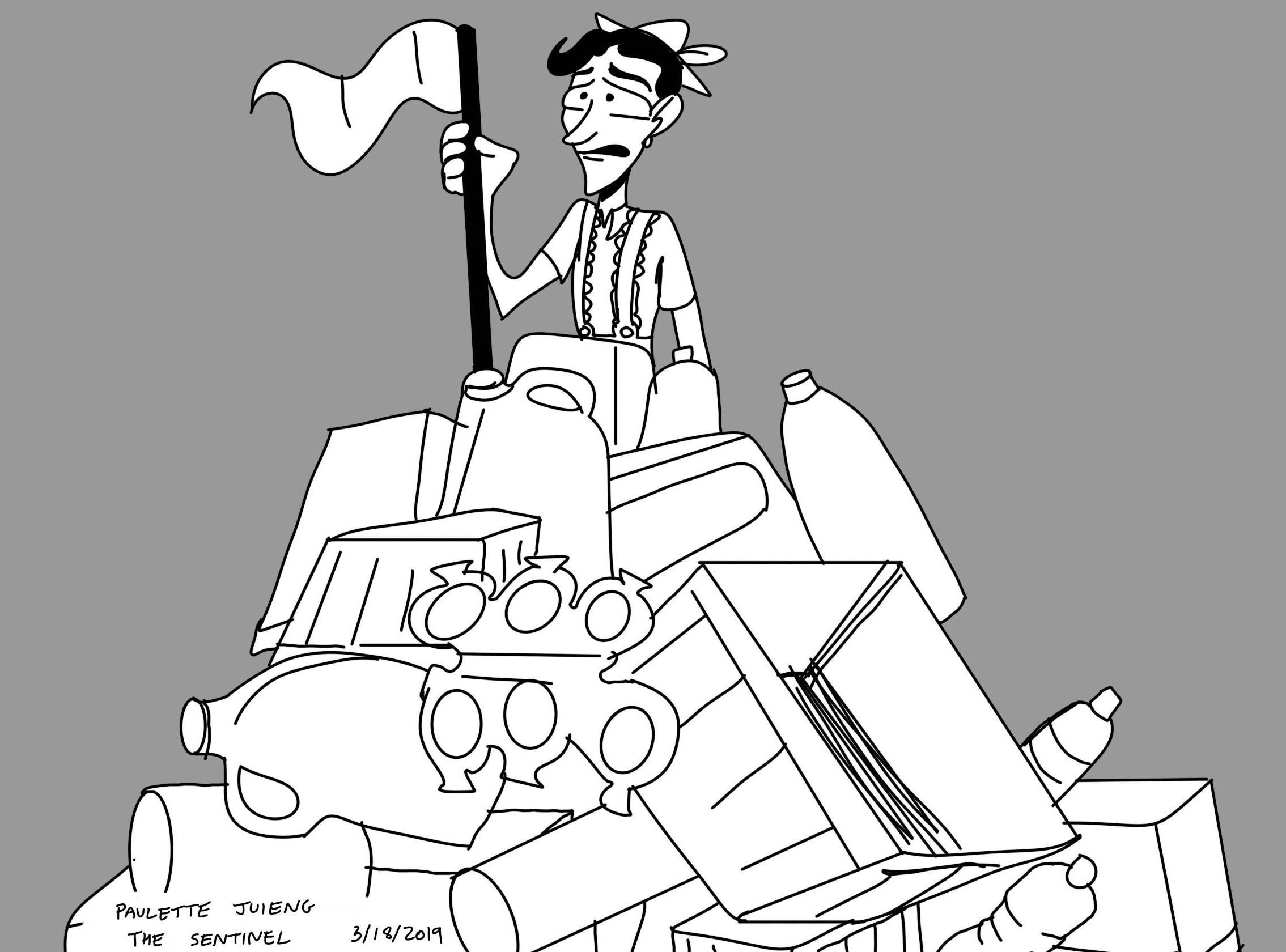College students use plastic for just about everything — plastic bags to carry food and plastic packaging for school supplies. Unfortunately, using all of that plastic leads to huge amounts of plastic waste, harming the environment and wildlife. Students should cut down on using plastic to prevent further harm to the environment and wildlife.
According to Plastic Oceans International, a non-profit organization, the world produces roughly 300 million tons of plastic waste each year, and 8 million tons of it ends up in the ocean. Packaging takes up 40 percent of plastic waste, and more than 1 million plastic bags are used each minute.
Plastic is used for plenty of things, but all of this usage without proper disposal has led to results that are damaging the earth. In the end, the plastic is entering soil, oceans and sources of water, harming biotic life in the process.

According to the United Nations Environment Program, one-third of plastic waste is in soil or in sources of freshwater. The plastic is broken down into the soil and eventually ends up in the food chain. Chlorinated plastic releases toxic chemicals into multiple sources of drinking water.
Not only is plastic bad for the soil, but it is also bad for the ocean. Most people know that the oceans are contaminated with plastic waste, yet continue to use copious amounts of plastic.
Plastic waste can be very harmful to sea life. Some animals eat and choke on the plastic particles, while other animals become permanently trapped in nylon nets or plastic bags. This leads to animals dying of suffocation, starvation and even drowning. An environmental campaign from UNenvirnoment.org predicts that, with current trends, there will be more plastic than fish by the year 2050.
Thankfully, people have realized the damage plastic waste has done and have taken action to help reduce waste. An article written for the World Economic Forum mentions that countries such as China, Morocco and Kenya have legally banned the use of thin plastic bags. The prime minister of India also made a promise to eradicate the use of single-use plastic by 2020.
While these international efforts may feel overwhelming, students can still help in smaller ways. Reusable water bottles and food containers can be purchased for very little money and are an easy way to cut down on single-use plastic. Making use of the recycling bins on campus is a remarkable way to ensure that plastic is disposed of properly. Students can also use reusable shopping bags.
The plastic waste produced today can end up harming human and sea life and the environment. While the elimination of plastic waste may be daunting, the smallest action can lead to improving the Earth. With changes like these, we can help contribute to reducing plastic waste worldwide and become one step closer towards saving life on Earth.



